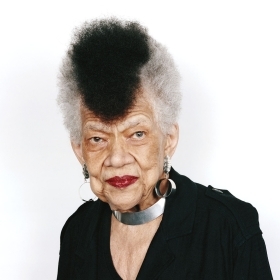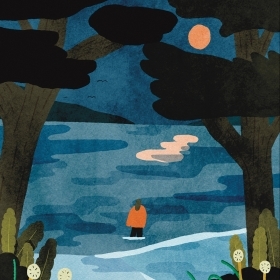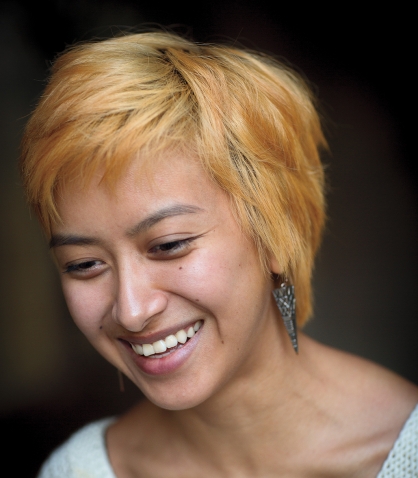A 1970s Experience
I read with great interest and appreciation your article “We Are First” (fall ’15).
I graduated in 1972. I was first-generation. I was recruited; no one in my family had ever heard of Wellesley. My tuition and board were paid for by a very generous benefactor. My family could not afford to travel to Wellesley from California, so I arrived alone. I had no money for books, clothing (the first winter I wore my California sandals during the snowfalls), or any extracurricular activities. The Students’ Aid Society helped pay for my books and loaned me money at no interest. Eventually, I found a job in the Village waiting tables, and I worked evenings in the chem lab cleaning petri dishes and other glassware. During vacations, I was unable to afford trips home to California, so I often went to the homes of Wellesley friends.
In many ways, I loved Wellesley. I had never lived around so much greenery, such beautiful architecture, and such silence. I was very busy with work and classes, so I did not participate in any organized extracurricular activities, but I adored running around the lake almost every day. The art-history and religion classes provided me with knowledge that has enriched me throughout my life. I graduated as a Durant Scholar and just retired from a fulfilling career as a pediatrician. I have been a lifelong learner. I feel that I would not have achieved as much without the Wellesley experience.
And yet, I was very isolated at Wellesley. I could not afford to go into Boston, to join the ski club, to even go out to eat. I would listen to but not contribute to the conversations around me. My family was unable to provide me with any advice about how to navigate a college experience. Most importantly, I had no idea if there were other students in my similar situation. Being able to connect with others, having a cohort, would have made all the difference for me.
I am touched and delighted that Wellesley has established the WellesleyPlus Program and the First Generation Network. I have never been to a Wellesley reunion. Despite my obvious successes, I have always felt like a bit of an outsider. Your efforts have touched me; and so this is the first time that I have reached out. I am very interested in finding out more about the programs and then offering my insight, support, and encouragement to any students. Wellesley is an amazing place, and every student should feel comfortable and confident benefiting from all it has to offer.
Helaine “Lainey” Pleet ’72, Oakland, Calif.
Support for First-Gen Students
I am very glad that Wellesley now offers so many resources for first-generation students (“We Are First,” fall ’15). When I attended college many years ago as a first-generation, scholarship student, there was very little available—other than perhaps the extra financial assistance provided through Wellesley Students’ Aid Society at graduation, etc. Adjusting to my freshman year was especially difficult, and as a high school valedictorian, I struggled with feeling out of place. However, when my father subsequently lost his job, the College did come through with some additional aid, and when he died during my junior year, the deans tried to provide some emotional support. But the comprehensive programs now in place would have made a big difference for me.
Willa Buckley Wolcott ’64, Gainesville, Fla.
Include International Students
A lot in the article “We Are First” resonated with me. I heard about the WellesleyPlus program during my sophomore year from an American friend who had been part of it. I wish I had known that when I first came to Wellesley straight from my Kenyan high school—a good one, but certainly not a U.S. one.
I was a first-generation college student, but my international background added an extra layer to the challenges I faced during my first year in Wellesley. I was new to the social and educational system; new to having to use a computer full-time for everything (never having used one for longer than 30 minutes previously and certainly not to type out 5,000-word, double-spaced, justified, one-inch margins with a header and numbered pages essays! I still pity the professors who had to read what I wrote that first semester); new to syllabi handed out at the beginning of courses; new to asking for help. These were challenges that I often felt that Wellesley did not care about—beyond getting international students to attend. I sorely wish the program would be opened to, and/or advertised and recommended to, international students. There are some who might not have had similar challenges to mine, but I am sure quite a few did, and simply “silently struggled through” as I did—for better or worse.
Wangui Kamonji ’13, Nairobi
A Student Perspective
I am a super-senior, and I am a first-generation student at Wellesley. I wanted to write you because the “We Are First” (fall ’15) article has made me so happy. One of my realizations about attending Wellesley has been that the lack of effort Wellesley College as an institution makes to connect with my mother, a Mexican immigrant who speaks English as a second language, has been a significant gap in my college experience. As a family, we have a lot to offer the Wellesley community, but that can be overlooked or erased because we are not prime donors to the College. It is thanks to my mother’s care and mentorship that I became a student Wellesley College welcomed.
This displacement is something I had felt before, because I attended an elite private high school in Chicago where there were very few families of color and even fewer working-class families. I appreciate how your story features students of color and working-class-family narratives and explores the debilitating “impostor syndrome” experiences that can arise from being a first-generation student in this environment. I can especially relate to the latter, because at one point I was so tired that I had to take a leave of absence before coming back and finishing my degree.
Thanks for thinking of and writing this story. I look forward to reading and discussing the article with my mom and family. I have already forwarded it to my friend who is a post-secondary coach working with many seniors who are to become first-gen students.
Laura Cabral ’16, Chicago





We ask that those who engage in Wellesley magazine's online community act with honesty, integrity, and respect. (Remember the honor code, alums?) We reserve the right to remove comments by impersonators or comments that are not civil and relevant to the subject at hand. By posting here, you are permitting Wellesley magazine to edit and republish your comment in all media. Please remember that all posts are public.